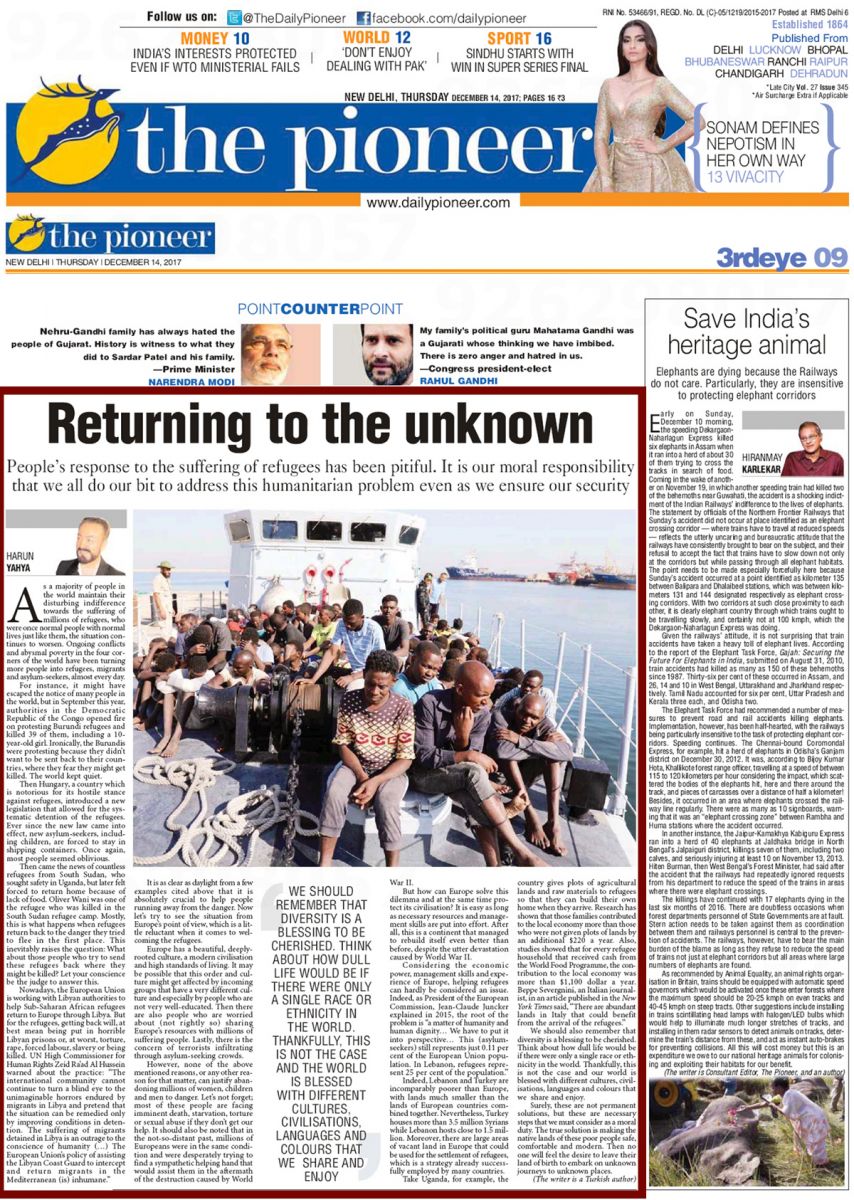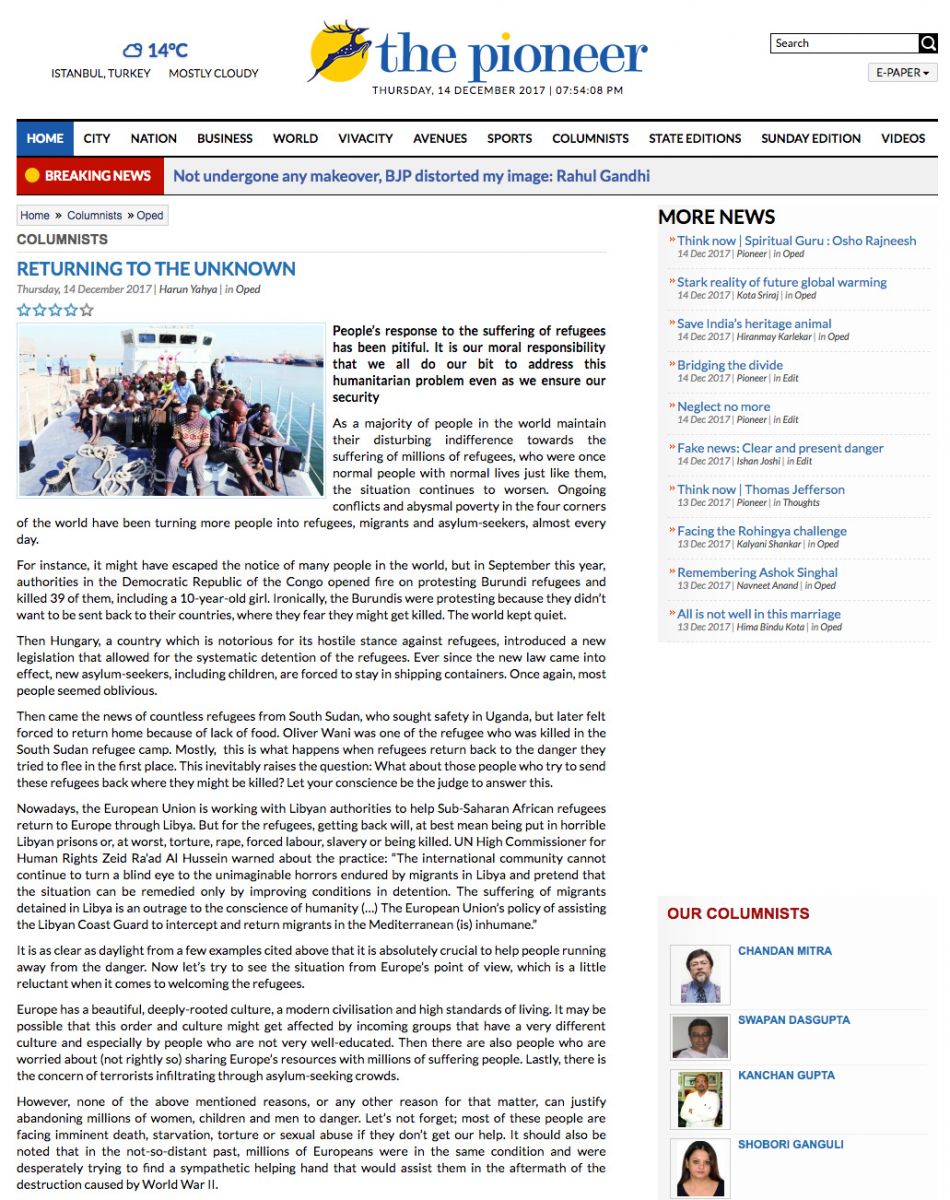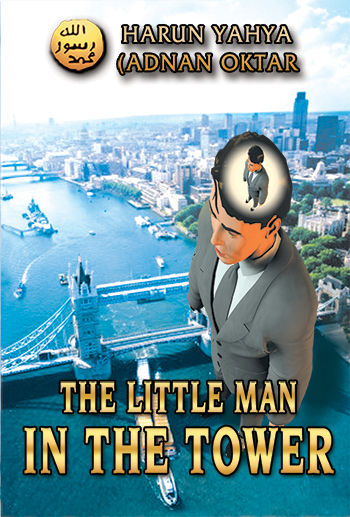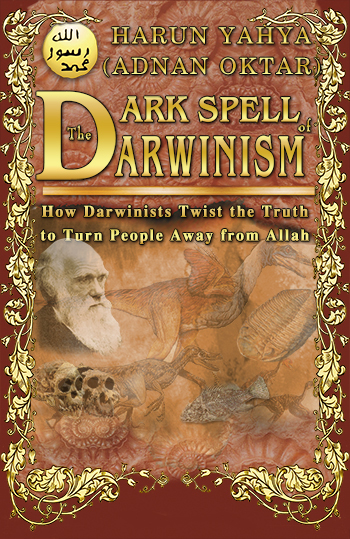Bigotry: The Dark Danger
Returning to the unknown

As the majority of the world’s people maintain their disturbing indifference towards the suffering of millions of refugees, who were once normal people with normal lives just like them, the situation continues to worsen. The ongoing conflicts and abysmal poverty in the four corners of the world turn more people into refugees, migrants and asylum-seekers every day.
For instance, it might have escaped the notice of many people in the world, but in September of this year, authorities in the Democratic Republic of Congo opened fire on protesting Burundi refugees and killed 39 of them, including a 10-year-old girl. Ironically, the Burundis were protesting because they didn't want to be sent back to their countries, where they might get killed. The world kept quiet.
Then Hungary, a country already notorious for its hostile stance against refugees, introduced new laws that allowed for the systematic detention of refugees. Since the new law came into effect, new asylum-seekers, including children are forced to stay in shipping containers. Once again, most people seemed oblivious.
Then came the news of countless South Sudanese refugees that sought safety in Uganda, but later felt forced to return home because of a lack of food; Oliver Wani was one of them but was killed in South Sudan. Most of the time, this is what happens when refugees return back to the danger they tried to flee in the first place. This inevitably raises the question: What about those people that try to send these refugees back where they might be killed? Let your conscience be the judge of that.
Nowadays, the EU is working with the Libyan authorities to return Sub-Saharan African refugees trying to get to Europe through Libya. But getting sent back means, -at best- being put in horrible Libyan prisons or -at worst- torture, rape, forced labor, slavery or being killed. UN human rights chief Zeid Ra’ad Al Hussein warned about the practice: “The international community cannot continue to turn a blind eye to the unimaginable horrors endured by migrants in Libya, and pretend that the situation can be remedied only by improving conditions in detention. The suffering of migrants detained in Libya is an outrage to the conscience of humanity (…) The European Union’s policy of assisting the Libyan Coast Guard to intercept and return migrants in the Mediterranean (is) inhumane.”
It is as clear as daylight from these few examples that it is absolutely crucial to help people running away from danger. Now let’s try to see the situation from Europe’s point of view, which is a little reluctant when it comes to welcoming refugees.
Europe has a beautiful, deeply-rooted culture, a modern civilization and high standards of living. It is possible that this order and culture might be affected by incoming groups that have a very different culture and especially by people who are not very well-educated. Then there are those people, who are worried about -not rightly so- sharing European’s resources with suffering millions. Lastly, there is the concern of terrorists infiltrating through asylum-seeking crowds.
However, none of these reasons, or any other reason for that matter, can justify abandoning millions of women, children and men to danger. Let’s not forget; most of these people are facing imminent death, starvation, torture or sexual abuse if they don't get our help. It should also be noted that, in the not-so-distant past, millions of Europeans were in the same condition, and were desperately trying to find a sympathetic helping hand that would assist them in the aftermath of the destruction caused by WWII.
But how can Europe solve this dilemma and protect its civilization in the process? It is easy as long as the necessary resources and management skills are put into the effort. After all, this is a continent that managed to rebuild itself even better than before, despite the utter devastation caused by WWII. Considering the economic power, management skills and experience of Europe, helping refugees can hardly be considered an issue. Indeed as the President of the European Commission, Jean-Claude Juncker explained in 2015, the root of the problem is “a matter of humanity and human dignity… We have to put it into perspective… This [asylum-seekers] still represents just 0.11% of the EU population. In Lebanon, refugees represent 25% of the population.”
Indeed, Lebanon and Turkey are incomparably poorer than Europe, with lands much smaller than the lands of European countries combined together. Nevertheless, Turkey houses more than 3.5 million Syrians, while Lebanon hosts close to 1.5 million. Moreover, there are large areas of vacant land in Europe that could be used for the settlement of refugees, which is a strategy already successfully employed by many countries.
Take Uganda, for example: The country gives plots of agricultural lands and raw materials to refugees so that they can build their own home when they arrive. Research has shown that those families contributed to the local economy more than those that were not given plots of lands, by an additional $220 a year. Also, studies showed that for every refugee household that received cash from the WFP (World Food Program), the contribution to local economy was more than $1,100 dollars a year. According to Beppe Severgnini’s, the Italian journalist, article published in NYT, there are abundant lands in Italy that could benefit from the arrival of the refugees.
We should also remember that diversity is a blessing to be cherished. Think about how dull the life would be if there were only a single race or ethnicity in the world. Thankfully, this is not the case and our world is blessed with different cultures, civilizations, languages and colors that we can share and enjoy.
Surely these are not permanent solutions, but they are necessary steps that we have to consider as a moral duty. The true solution is making the native lands of these poor people safe, comfortable and modern. Then no one will feel the desire to leave their land of birth to embark on unknown journeys to unknown places.
Adnan Oktar's piece in The Pioneer (India):
http://www.dailypioneer.com/columnists/oped/returning-to-the-unknown.html








